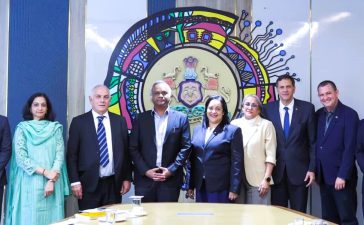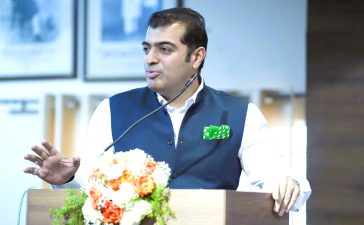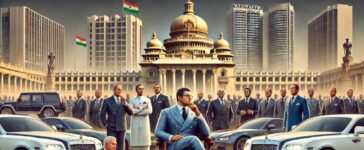Electoral Roll Revision in Bihar Sparks Concerns Over Voter Disenfranchisement
Experts Warn of Undemocratic Implications of Special Intensive Revision (SIR)
Bangalore, [Date] – A panel of democracy advocates and former bureaucrats has raised serious concerns over the Election Commission of India’s (ECI) implementation of the Special Intensive Revision (SIR) of electoral rolls in Bihar, calling it an unconstitutional move that could disenfranchise millions of voters.
At a discussion organized by the Forum for Democracy and Communal Amity – Karnataka (FDCA-K) and CIVIC Bangalore, experts alleged that the SIR, a newly introduced process, bypasses established electoral laws and risks undermining democratic principles.
SIR: A Threat to Voting Rights?
Under the SIR, 2.97 crore voters enrolled before 2003 are being subjected to additional scrutiny, requiring them to submit fresh documents to retain their voting rights. Failure to comply could lead to their removal from the electoral rolls—a move critics argue is arbitrary and lacks legal basis.
Jagadeep Chhokar, founder trustee of the Association for Democratic Reforms (ADR), stated:
“Voters used to decide who will form the government, but through the SIR in Bihar, the Election Commission will decide who has the right to form the government.”
He emphasized that the ECI’s role is limited to managing electoral rolls—not determining citizenship, which falls under the Home Ministry’s jurisdiction. ADR has filed a Public Interest Litigation (PIL) challenging the SIR, arguing that it violates due process.
Politicization of Electoral Process
A major concern raised was the involvement of 1.5 lakh Booth-Level Agents (BLAs)—appointed by political parties—and 4 lakh volunteers in collecting and verifying voter forms. Experts questioned their neutrality, warning that the process risks being manipulated for partisan gains.
“The electoral roll preparation has been illegally handed over to political parties and volunteers,” Chhokar said, adding that while the current rolls need correction, the “intention, method, and timing of the SIR” are suspect.
Legal and Procedural Violations
Existing laws mandate that voters can only be removed after being given a notice and a personal hearing. A 1995 Supreme Court ruling reinforced that voting rights cannot be revoked without due process.
Mr. M.G. Devasahayam (Retd. IAS), Coordinator of Citizens’ Commission on Elections, called the SIR a “panic reaction” by the government, implemented without proper guidelines.
“The electoral system is being weaponized to undermine democracy. The SIR lacks definition, rules, and procedures—it is being pushed through in undue haste.”
He also criticized Electronic Voting Machines (EVMs), alleging vulnerabilities that could allow false votes to be injected, and questioned the reliability of VVPATs.
Call for Citizen Action
Prof. Saleem Engineer, National General Secretary of FDCA, accused the SIR of selectively excluding voters rather than expanding participation.
“The Home Ministry is pushing its agenda through the ECI, which must remain neutral.”
Invoking the spirit of the 1942 Quit India Movement, he urged citizens to resist divisive forces and reclaim democratic power.
The event was also attended by Dr. Belgami Mohammad Saad, Mr. M.F. Pasha (FDCA-K), and Ms. Kathyayini Chamaraj (CIVIC Bangalore), who echoed concerns over the erosion of electoral integrity.
Conclusion: A Democracy at Risk?
The SIR in Bihar has ignited a fierce debate on electoral fairness, bureaucratic overreach, and voter rights. With legal challenges underway and civil society mobilizing, the controversy underscores the fragile balance between election management and democratic safeguards.
As India approaches another election cycle, the question remains: Will the Election Commission uphold its constitutional duty—or become a tool for exclusion?
Media Updates: +91-93531 21474 [WhatsApp]
Key Quotes:
1. Jagadeep Chhokar (ADR):
“Voters decide governments, but through SIR, the Election Commission will decide who forms the government.”
“SIR is illegal—it hands electoral roll preparation to political parties, violating due process.”
2. M.G. Devasahayam (Retd. IAS):
“The electoral system is being weaponized to undermine democracy.”
“SIR is a panic reaction—rushed without rules, training, or transparency.”
3. Prof. Saleem Engineer (FDCA):
“Instead of including voters, SIR is excluding them—Home Ministry’s agenda is at play.”
“We must reclaim democracy like in 1942—resist divisive forces now.”
![]()











